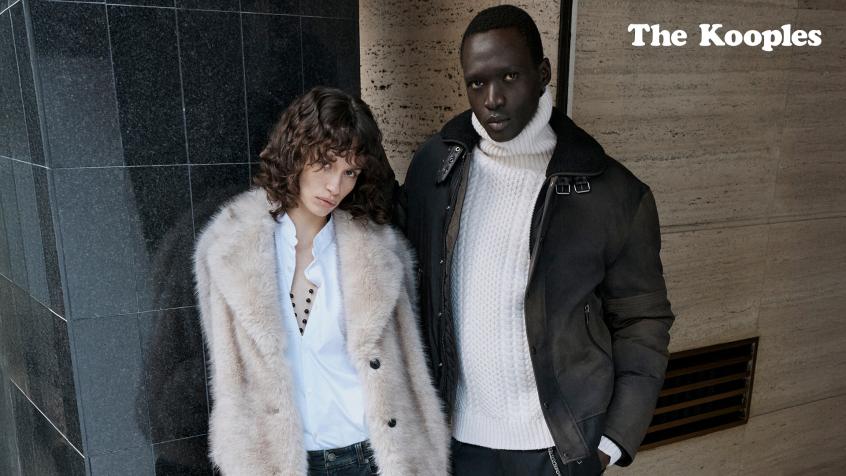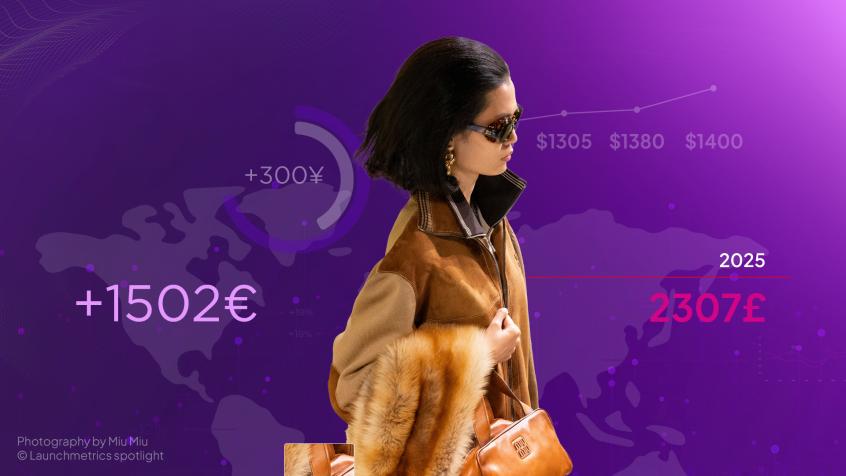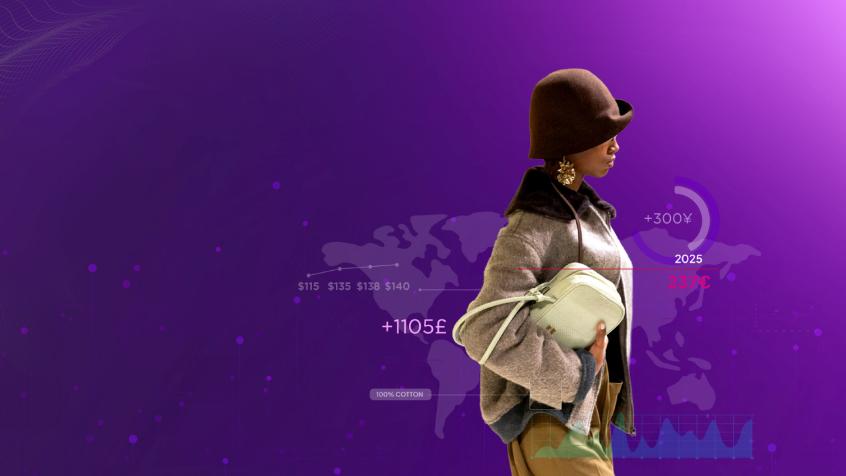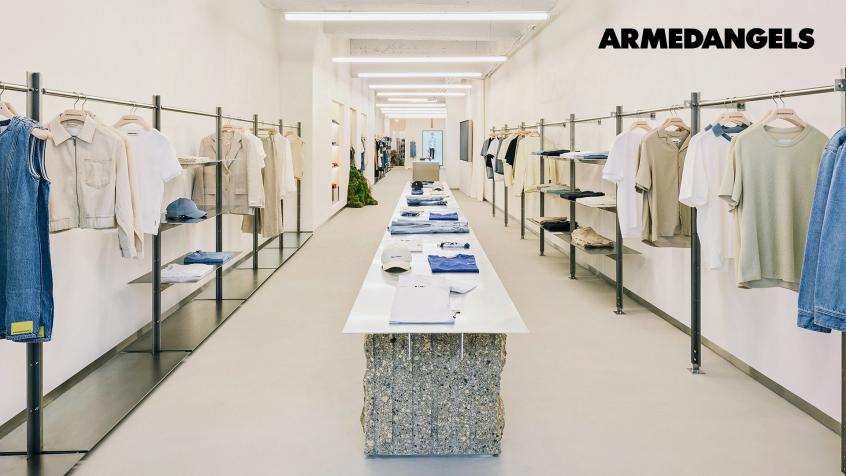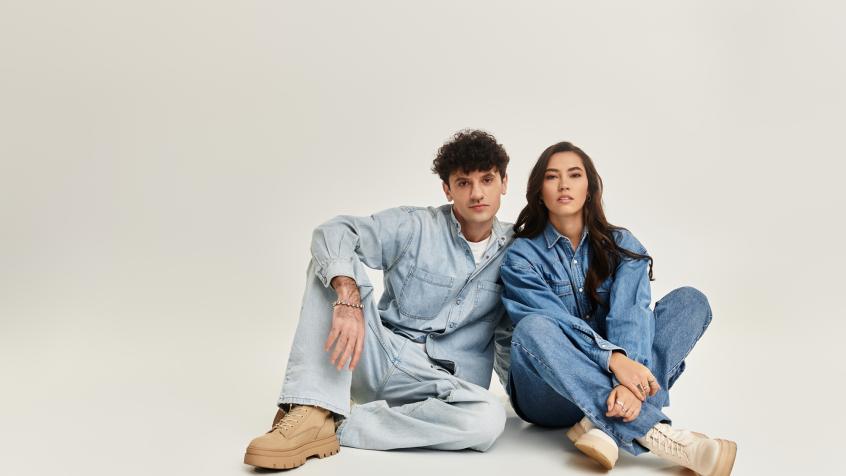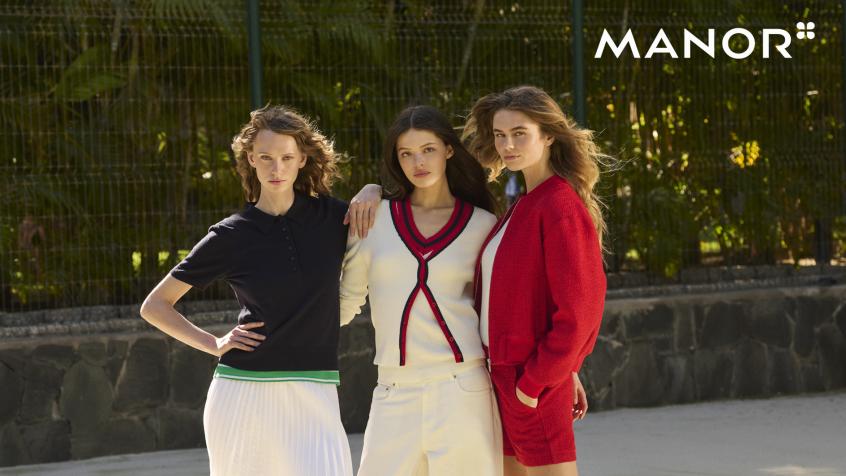Back to Basics: Uniqlo’s Brand Strategy
The affordable premium leader

Key takeaways
- With its intention to further expand in the US, Uniqlo is said to be priced 41% and 31% higher in European and North American markets, compared to its home country, Japan.
- The cashmere sweaters expert is increasingly investing in other premium fabrics including linen and wool with +2% and +29% compared to the previous year.
- Uniqlo counts two times more colors per category, confirming its strategy to offer more basics in different colorways for each item.
Uniqlo has gained recognition for its affordable cashmere sweaters and reliable, timeless basics. With its shoulder bag being recently featured as the hottest product in the Lyst Index Q1, the brand has seen a double-digit sales growth in the past few months. With a strong global presence in Asia and Europe, Uniqlo has recently expressed its desire to expand into the US market. Its success relies on its vision, which combines minimalistic design, high-quality fabrics, and competitive pricing. In recent years, Uniqlo has expanded operations in the US, where it has faced competition from established retailers. However, the company's commitment to quality and affordability has helped it stand out from the crowd, but how can the brand gain a loyal following among American consumers?
An international pivot
As a Japanese brand, Uniqlo faces challenges in setting prices that appeal to consumers in different countries. Cultural differences can affect consumer behavior, preferences, and perceptions of value, all of which can influence pricing decisions. With an established presence in Europe and the US, are items priced uniformly across markets?
Retviews has provided valuable insights into Uniqlo's pricing strategies across key markets. The data reveals that Uniqlo employs a more premium pricing strategy in the European market, with an average price of $41, compared to $38 in the US and $29 in the Japanese market, which corresponds to a 41% higher average price point. The topic of inflation has been at the forefront of economic discussions, and Retviews’ data indicate that the European and Japanese markets have increased their average price by 8% and 7% YoY, respectively. In contrast, data show that Uniqlo has not increased its prices YoY, within the US market. By leveraging Retviews' AI powered data, Uniqlo can effectively tailor its pricing strategy according to each market's characteristics. This enables the brand to remain responsive to changes in the economic environment and ensure that its pricing aligns with market conditions.
Retviews’ data prove that there are similar trends for US and Japanese markets regarding the share of discounted items, as both markets have exhibited an 8% increase. However, the average discount rates have also increased, indicating that the challenge of too much inventory might still be a concern for Uniqlo. The US market displayed the heaviest discounts, with a share of discounted items and average discount rate respectively 5% and 31% higher than in the Japanese market. Potentially struggling to manage inventory in the US market, is Uniqlo getting the most relevant collection in the US market?


The US competitive landscape
With its eye on further expansion, Uniqlo continues to adapt to the changing retail landscape. The company offers a comparatively smaller assortment size with a little bit less than 4000 items in its collection.
A closer look at the brand's approach reveals that Uniqlo's assortment size could be kept small to minimize unsold inventory. By producing fewer items and keeping its assortment size limited, Uniqlo can use its resources more efficiently and reduce the amount of waste generated. Compared to its competitors, the brand introduces a lower number of new items each month, focusing on delivering minimalist and basic pieces that stand the test of time.
It is evident that both retailers Uniqlo and ZARA have taken divergent approaches in terms of their product offerings. Uniqlo appears to have focused on timeless and classic basic pieces, with a more unisex style. This approach proves that the Japanese brand remains reliable and functional for its customers. In contrast, ZARA has chosen to focus on more trendy pieces, including items such as cargo pants and large-pocketed pants.
When comparing the average number of colors, Retviews reveals that Uniqlo offers, on average, two times more colors in each category compared to its Spanish counterpart, ZARA. This highlights Uniqlo’s propensity to propose much more basics in a wider range of colorways for each item, whereas ZARA has a larger selection of items, with fewer color options per article.



Investing in quality fabrics
It is not the first time we have seen leading brands such as ZARA expressing their desire to tap into a more premium offering. Uniqlo’s consumers are willing to invest in timeless and versatile pieces, which is the reason why the brand is well-known for offering quality products made from premium fabrics such as cashmere, linen, and wool. These fabrics have been increasingly popular among leading mass market brands, as the share of cashmere, linen, and wool in the tops category has been on the rise.
As shown by Retviews’ data, cashmere has exhibited the strongest surge in assortment presence within the tops collection, with a remarkable 147% and 70% increase for Uniqlo, and the overall US mass market, including popular brands such as Old Navy, Zara, and American Eagle. Uniqlo has a higher share of products containing cashmere and wool in its assortment compared to the US market, thus solidifying its more premium status as a mass brand. Nonetheless, US mass market giants Aritzia and ZARA have also been using higher quality fabrics that have evidently contributed to increased pricing.
Retviews’ data show that Uniqlo is an intermediary brand that offers high-quality cashmere collections at competitive prices. Specifically, Uniqlo's average and most frequent prices for cashmere tops are second on the pricing spectrum, with competitors Aritzia and ZARA occupying the two extremes. This positioning strategy reflects Uniqlo's commitment to providing customers with high-quality apparel at an accessible price point. Furthermore, Uniqlo's intermediary pricing strategy enables the brand to differentiate itself from competitors such as Aritzia and ZARA, which target different customer segments with different pricing strategies. While Aritzia positions itself as on the higher-end of the mass spectrum, with consistently premium pricing, ZARA targets budget-conscious customers with low-priced offerings, although the trend is slowly shifting.


The secret to optimizing your international expansion
Leading fashion brands worldwide are monitoring competitors’ strategies in real-time, allowing them to stay ahead of the curve and on top of the market. What’s their secret to doing so? The automated competitive intelligence platform, Retviews. Find out how your brand can also use Retviews to make confident, data-based decisions in a fraction of the time spent benchmarking manually.
Use the Retviews platform to benchmark your offer against your competitors
Related Content
